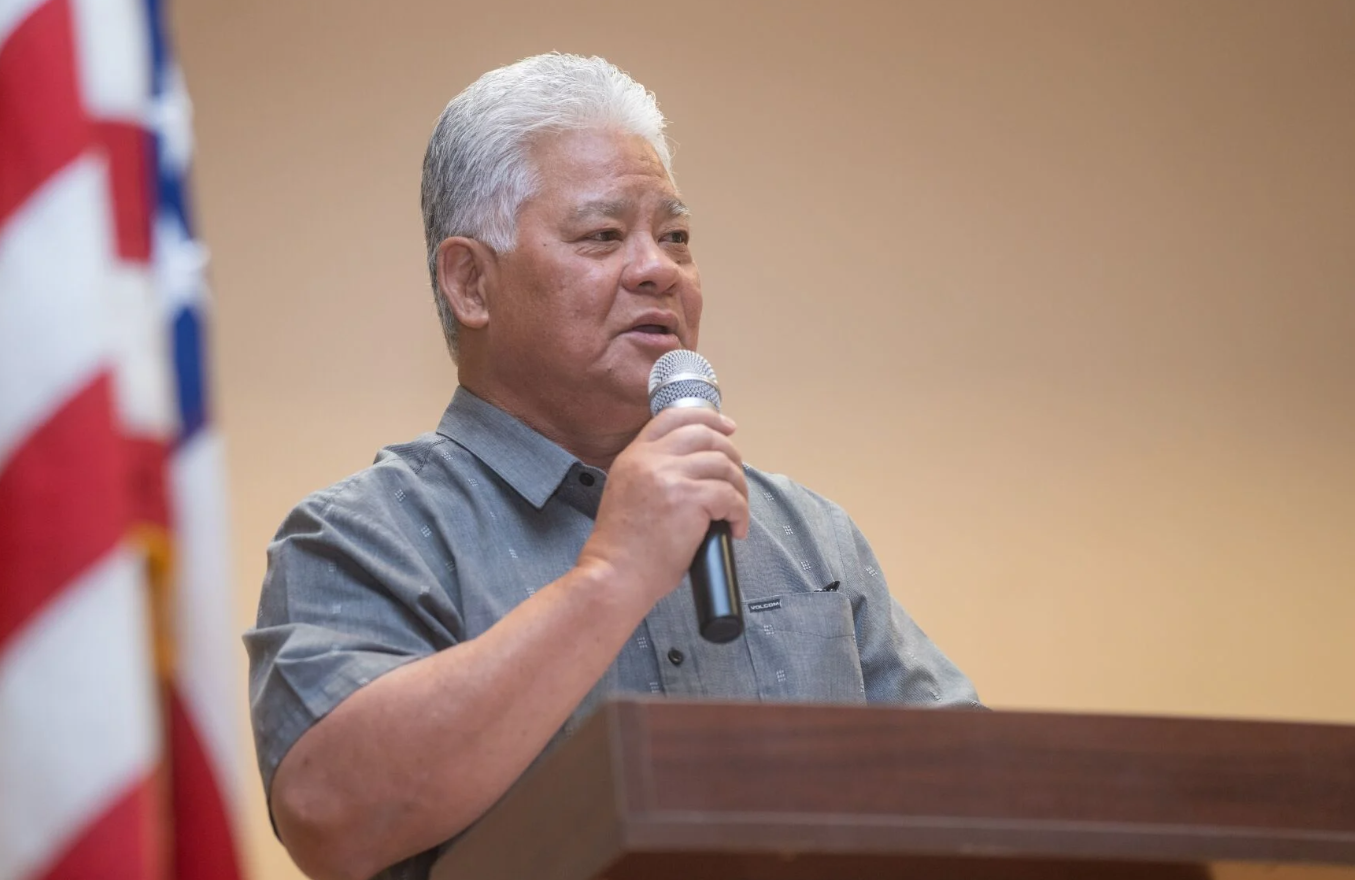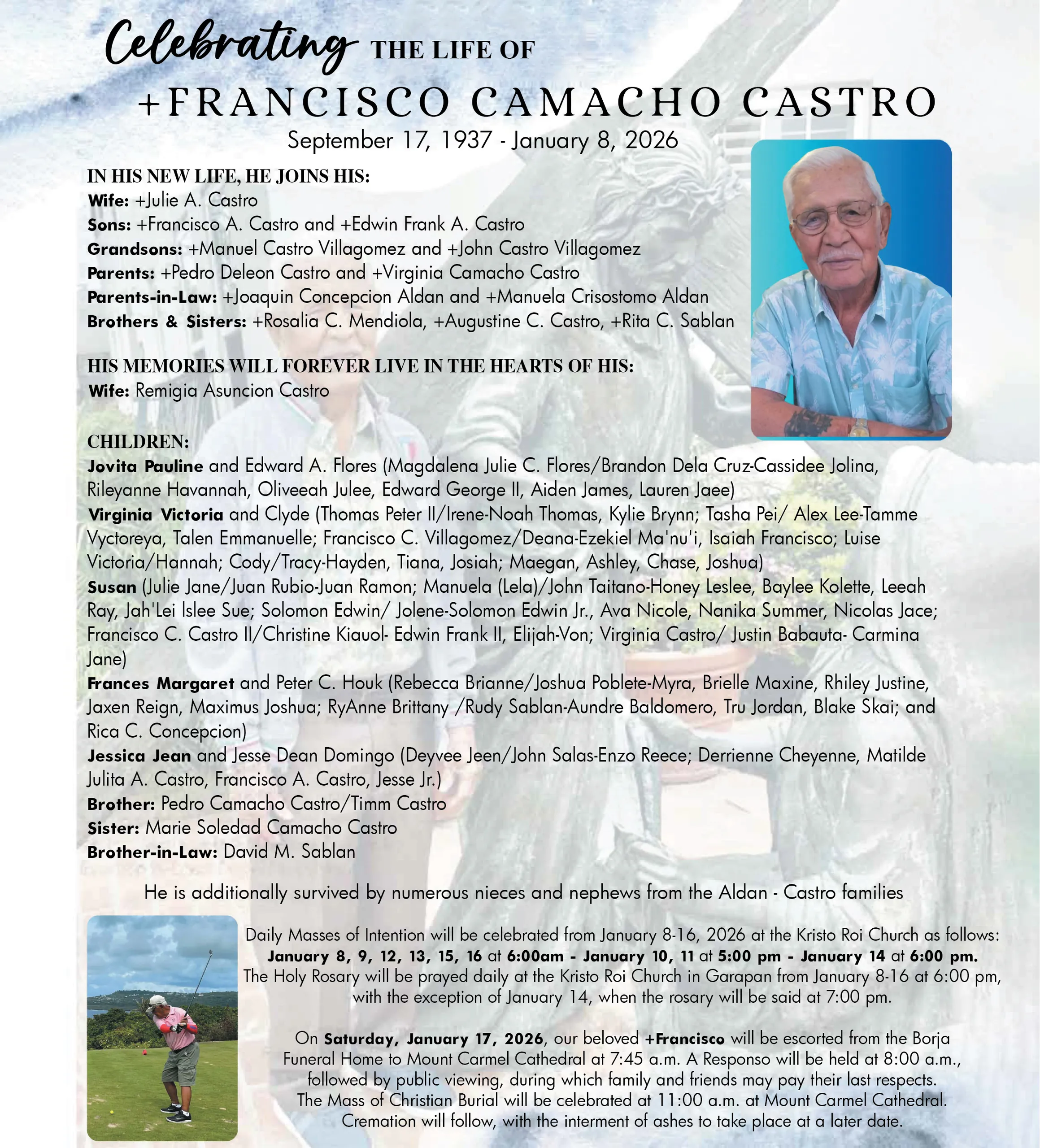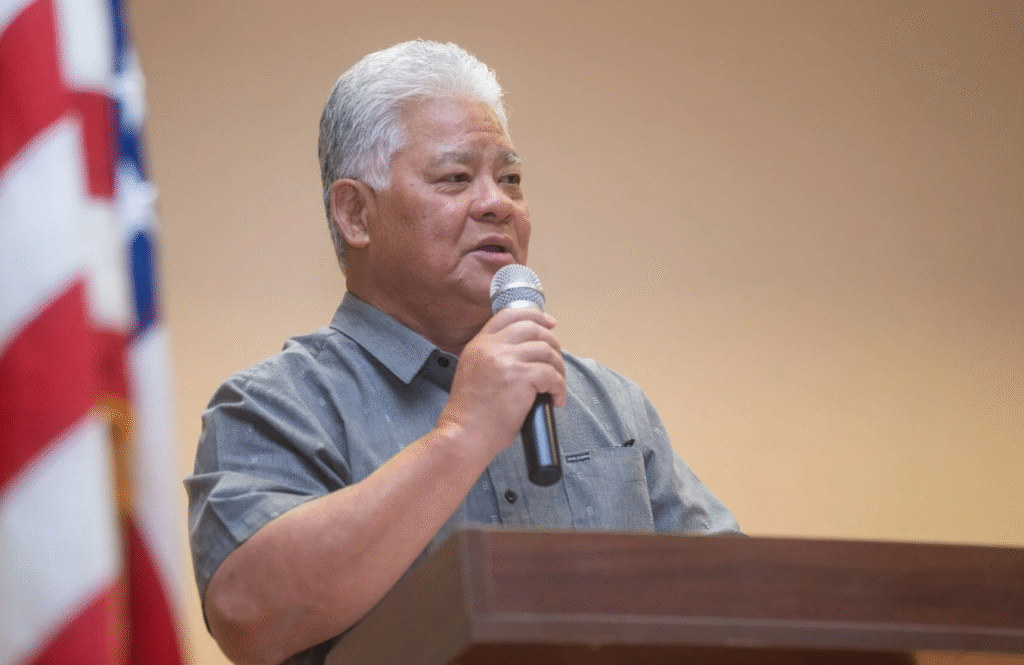
Arnold I. Palacios
GOVERNOR Arnold I. Palacios said he felt “very positive” about his engagement with Interior Secretary Doug Burgum and White House Intergovernmental Affairs Director Alex Meyer regarding the continuation of the Covenant 902 talks between the CNMI and the U.S.
In a press conference on Thursday, Palacios said the continuation of the 902 talks, which began last year, was one of the “major asks” he made for the Commonwealth during the two-day meeting of the Interagency Group on Insular Areas in the nation’s capital last month.
“And so right off the bat … I pointed [it out] to Secretary Burgum and Director Alex Myers. They were very, very engaged, so I felt very positive in that regard. I think we might be seeing immediate results in my engagements,” the governor said.
He said he also discussed Section 702 funding, and the restoration of its full amount for the CNMI.
Section 702 of the Covenant provided $27 million annually in direct financial assistance for the Commonwealth. In 1996, during the administration of President Bill Clinton, U.S. Public Law 104-134, the federal budget act, divided the 702 funds among the CNMI and other insular areas.
“The irony of that is it is CNMI Covenant funds. And it’s supposed to be $27 million annually. And now it is being divvied up with other jurisdictions. That [Covenant] is the agreement that the people … agreed to. That is Covenant fund, there is no question about that,” the governor said.
The upshot of of the 702 funds discourse with Burgum and Myers, according to the governor, was that the officials “were very interested in getting that addressed.”
“I really believe that … it is going to happen fairly soon,” he said, adding that Burgum asked him for the names of the Office of Insular Affairs staff members who were on the U.S. panel during the 902 discussions last year. “I gave him those names, so you could tell that there is going to be some immediate action on that. And that is my takeaway,” Palacios said.
He said the Commonwealth is asking for $62 million in Section 702 funds.
Commonwealth Economic Development Authority board member Michael S. Sablan, who was part of the governor’s team at the IGIA meeting, said the other change that was made in the Section 702 funding was the elimination of inflationary adjustment. The 27 million in current dollars is now worth approximately $60 million based on the estimate of the CNMI government’s economists, Sablan said.
Section 704 (d) of the Covenant states: “Upon expiration of the seven-year period of guaranteed annual direct grant assistance provided by Section 702, the annual level of payments in each category listed in Section 702 will continue until Congress appropriates a different amount or otherwise provides by law.”
Blast from the past
In a separate interview, former Gov. Juan N. Babauta said the change in the Section 702 funding began during the administration of Gov. Froilan C. Tenorio (January 1994-January 1998). Babauta was the Washington representative at the time.
Babauta said during a hearing in the U.S. House, Tenorio told U.S. lawmakers that the Commonwealth no longer needed that money.
“As soon as Governor Tenorio stood up from the seat, I sat right on the same seat and told the committee chair, ‘I strongly disagree with the governor. We need that money.’ But of course, it was the chief executive of the Commonwealth they would listen to, not me,” Babauta said.
He also noted that at the time, the CNMI government budget was equivalent to about 300 million in today’s dollars.
For the current fiscal year, the CNMI government’s budget amounts to $139 million.
According to Variety news files, in early 1995, Tenorio, a Democrat, appeared before a U.S. House subcommittee chaired by Republican Rep. Elton Gallegly, who had introduced legislation to federalize CNMI immigration and minimum wage.
Tenorio said the CNMI was willing to forego 702 funds if Congress would allow the islands to retain control over immigration, taxation and minimum wage while instituting reforms at the local level.
“We have grown up and with adulthood, the handouts end,” Tenorio said. “You will actually be helping us by taking them away. In fact, federal subsidies do more harm than good because [they] perpetuate our dependence on the federal government and [they] come … with too many strings attached,” he added.
Through legislation, the U.S. government federalized the CNMI minimum wage in 2007 and immigration in 2008.










